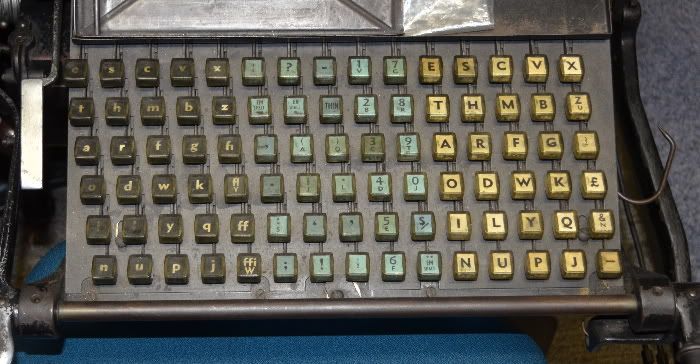Wednesday, November 7, 2012
Friday, August 10, 2012
More Swipe
...the research, which has so far tested 46 children aged four to six, involves examining their attention and problem-solving capabilities after using an iPad compared with using real toys. For example, as part of the study, children are being asked to solve a problem using a wooden model. They are also asked to solve the same problem using an iPad app. After they have played, they are given a test to assess their attention.
Dr Kaufman also gets children to participate in drawing, colouring and block building, both physically and on iPads. Preliminary findings have shown that for some children, touchscreens appear to motivate and enhance learning rather than hinder it.
Dr Kaufman also said results were indicating that calm, creative activities on the touchscreen, such as painting, were similar to their ''real world'' counterparts in that they ''do not seem to adversely affect children's behaviour or attention in the short term''.So you read it here, first, folks!
James
Wednesday, March 14, 2012
Monday, December 26, 2011
Surviving for the fans
Depth Vs Breadth
A slight 100 years ago people were generally deeply read, but not widely read, meaning that they read the bible and perhaps a few other books deeply, but they had not read widely. It wasn't until the appearance of Mechanic's Institutes, public libraries, and more frequently found fee-based lending libraries that people began to read more widely and less deeply.
It appears that today the trend is toward technical reading and away from wide or deep reading. The purpose of technical reading is to extract information from a screen full of a mix of images, graphics, and text. This type of heavily graphics-oriented reading wasn't practical when I was young--in the 1950s. Up until the advent of the microcomputer graphics--especially color graphics--was an expensive proposition for print. Dense (and cheap) text was the norm.
As usual with technological advance it is difficult to grasp the qualitative differences in change. Really, is the change good or bad? Or, is it more likely that the result is just something "different"? With "deep" reading people could quote and recognize homilies from the bible. With "wide" reading that didn't happen so often, but we could identify the "sound" or structure of Shakespeare, a cowboy and indians tale, or a British spy story.
With technical reading people tend to think in multiple dimensions and see "exploded" technical images in their minds that they can rotate in multiple dimensions--graphical images of glaciers moving in and melting, images of the solar system rotating about multiple axes. Tricks like that make understanding concepts difficult to describe using just words, like evolution, suddenly simple to understand. Different techniques, different results. Not better, not worse, just different and adapted for the times.



